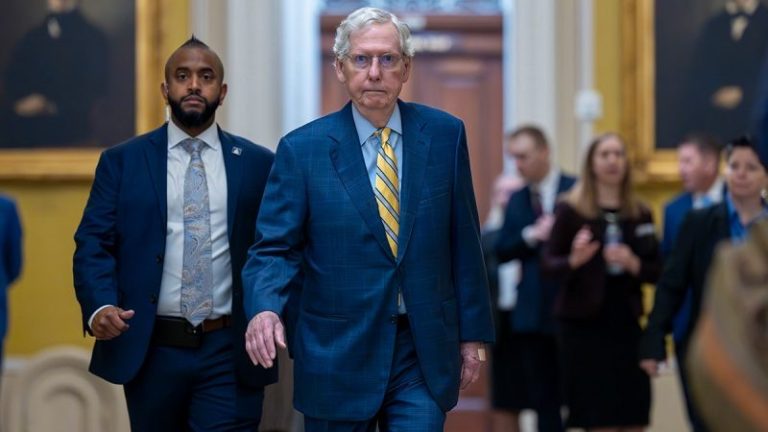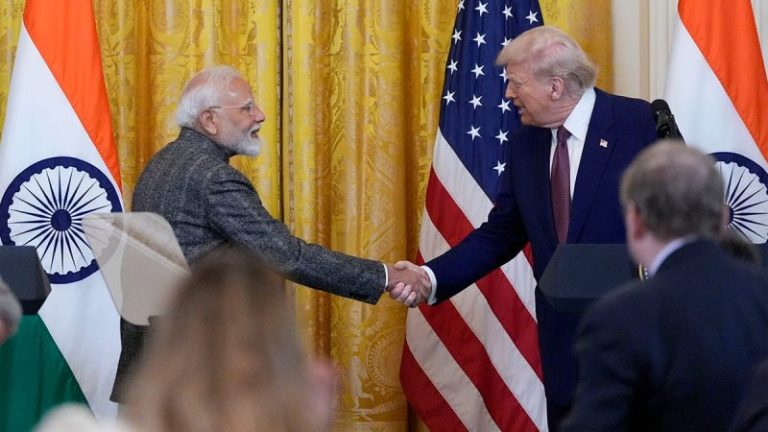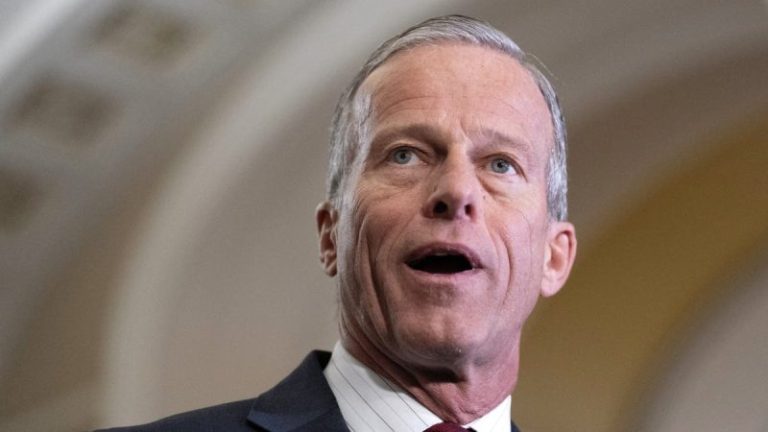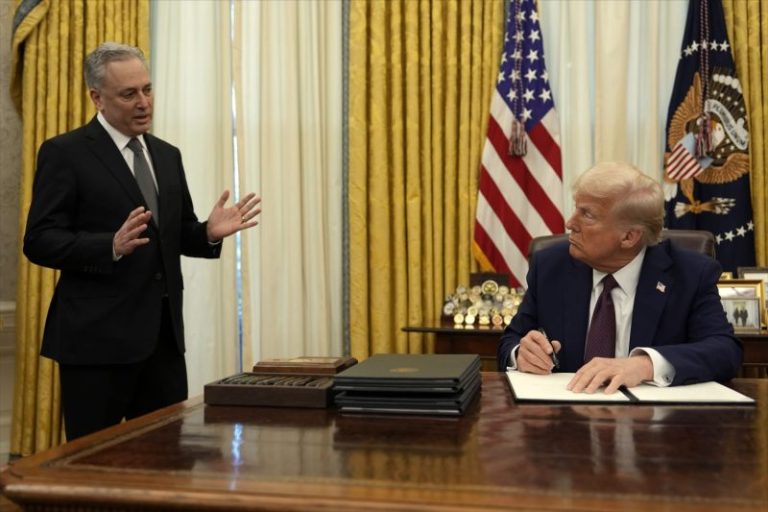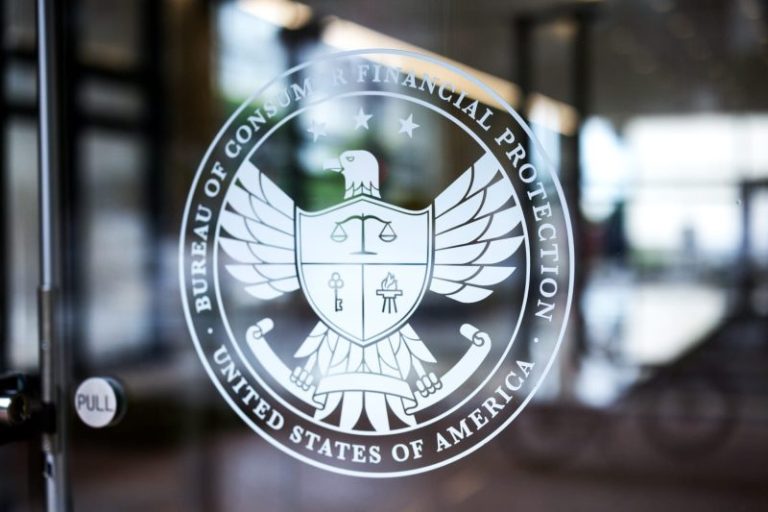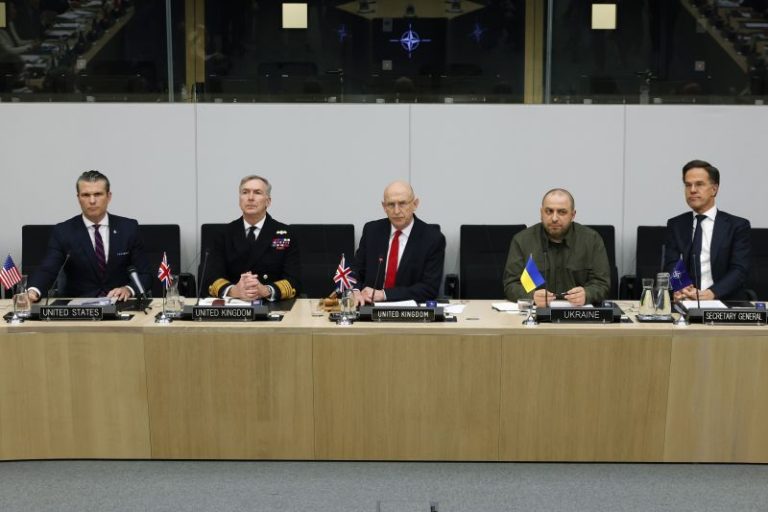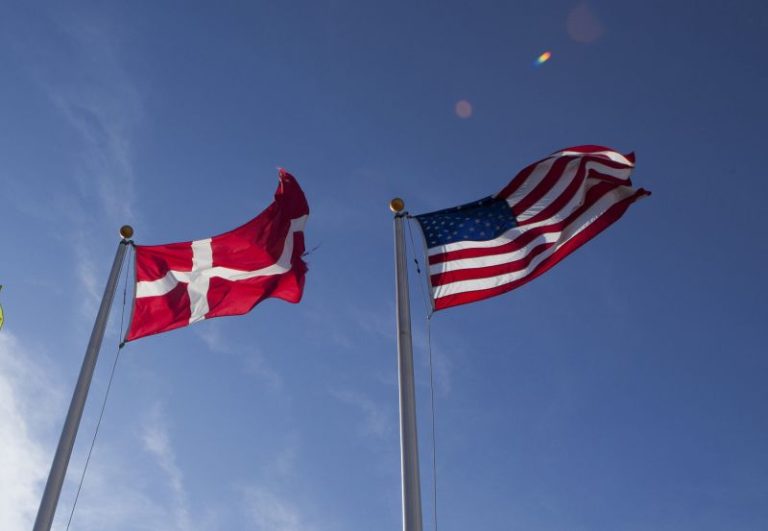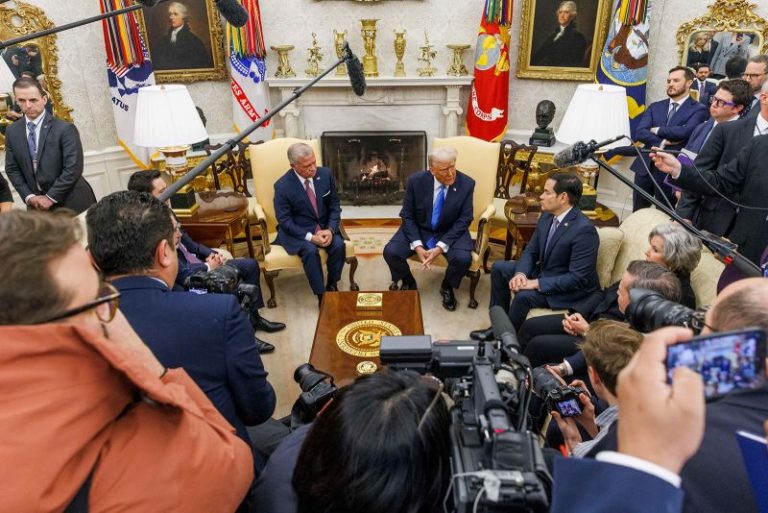When the Consumer Financial Protection Bureau made an appearance in the Heritage Foundation’s Project 2025 blueprint, the conservative group’s plan was simple: Abolish it entirely.
Now, with a Project 2025 co-author in charge of the bureau, that idea looks like a real possibility.
Over the weekend, Russ Vought, President Donald Trump’s pick to head the powerful Office of Management and Budget, took over as de facto head of the agency and subsequently ordered all nonessential work there to stop. Vought is one of more than 30 co-authors of Project 2025, the conservative policy blueprint for the Trump administration’s agenda, though he did not write the section on the CFPB.
“The Consumer Financial Protection Bureau is arguably the most powerful and unaccountable regulatory agency in existence,” the report states.
Whether the bureau is rendered toothless by its new leadership or abolished by congressional action, its emergence as a target for conservative ire has been years in the making, boosted most recently by technology executives including Elon Musk and venture capitalist Marc Andreessen. Created by Democrats, led by Sen. Elizabeth Warren, of Massachusetts, in the wake of the Great Recession, the CFPB lodged steady but largely unglamorous wins for consumers.
Yet all the while, it faced a drumbeat of opposition from small-government conservatives and business interests who challenged not only its regulations and enforcement actions, but its very basis for existing. Consumer complaints about corporate misbehavior have by some measures reached all-time highs.
“This is an agency that has an incredible amount of responsibility for regulating in the financial services sector,” said Julie Margetta Morgan, a former associate director at the bureau who started there in 2022 and resigned right after Trump’s second inauguration. She added, “There are a number of big bank lobbyists who have had it out for the CFPB from Day 1.”
But most recently, some in the tech world — including those who have become particularly influential with the Trump administration — have been its loudest critics.
Musk, who leads the administration’s Department of Government Efficiency (DOGE) effort, posted “RIP CFPB” on X on Sunday. Andreesen, co-founder of venture capital firm Andreesen Horowitz, said on a podcast last year that the agency had been “terrorizing financial institutions.” Part of his criticism has centered around “debanking,” something that the CFPB itself also tried to stop. (In 2021, the CFPB shuttered a lending startup backed by Andreessen Horowitz.)
“The CFPB works for regular people that don’t run in Elon’s circle,” said one current CFPB employee, who was granted anonymity out of fear of reprisal. “Elon doesn’t know single mothers whose cars break down and are scammed by predatory car lenders. He doesn’t know what it’s like to be driven into debt by overdraft fees. He doesn’t have a mortgage he is struggling to pay off. So he can’t understand why the CFPB is so important to protect regular folks from being scammed.”
Compared with the vast resources historically commanded by the Justice Department’s antitrust division, not to mention the Federal Trade Commission — the agency traditionally tasked with enforcing consumer regulations — the CFPB’s remit was always relatively limited in scope. Notably, its annual budget has never exceeded $1 billion.
It is thus perhaps not surprising that it never landed a proverbial knockout blow that would stick in the minds of the American public. Still, it steadily gained a favorable reputation. In 2015, Time magazine devoted a major feature to the bureau under the headline, “The Agency That’s Got Your Back.”
Margetta Morgan, the former CFPB associate director, said eliminating medical debt from credit reports has been particularly significant.
“When CFPB started digging in on medical debt, it was astounding to see the extent to which consumers had inaccurate medical debt on their credit reports and then were being hounded by debt collectors over them,” she said. “I think the medical debt rulemaking was huge, and we saw that when we spoke to individual consumers.”
Yet as early as 2017, conservatives were charting a path to end the agency altogether. An article that year published by the Heritage Foundation — the group whose Project 2025 now appears, despite some Trump assurances to the contrary, to be driving much of his second administration’s rollout — laid out the case against the CFPB’s very existence.
“The Consumer Financial Protection Bureau is arguably the most powerful and unaccountable regulatory agency in existence,” the article’s authors wrote, arguing that its rulemaking ultimately restricted Americans’ access to credit while “eroding their financial independence” and posing concerns about due process and separation of powers.
Instead, they said, consumers would enjoy the same protections if the agency’s powers were swept back into the Federal Trade Commission and if existing state and local laws were enforced, they said.
One of the authors, Norbert Michel, today a vice president at the pro-free-market Cato Institute, told NBC News that assuming that malfeasance is taking place — something he said there is often disagreement about — enforcement powers already exist at multiple government agencies, not to mention at the state level, to address it.
“In one sense, you’ve given a new federal agency extreme discretionary power — and in other sense, done nothing new,” Michel said. “So somewhere in there you have an increase in government authority that’s not necessary.”
Still, the agency persisted and became particularly active under Rohit Chopra, a Biden appointee, who helped bring actions against many major lenders, as well as financial technology firms and loan servicing groups.
Chopra’s largest action came against Wells Fargo, which paid a $1.7 billion penalty over accusations it improperly repossessed cars and froze customers’ accounts. Chopra also engineered a settlement with Navient, formerly among the nation’s largest student-loan servicers, over allegedly abusive practices.
Yet it was the agency’s recent work around so-called financial technology enterprises that may have created the conditions for its demise. In 2023, it sought to subject large fintech players like PayPal and Venmo to the same supervisory examination process as banks.
Since that time, Musk has made clear he hopes to turn X into a payments platform. X recently announced a deal with Visa to begin processing payments.
“You have Silicon Valley VCs not wanting any oversight of their businesses, many of which are premised on the idea that [financial technology] somehow is new and different and thus not subject to traditional consumer protections,” said another current CFPB employee who spoke on the condition of anonymity.
Last year, the Supreme Court heard the first challenge to the CFPB’s very existence — and decided in its favor, with Justice Clarence Thomas, viewed as among the court’s most conservative members, writing for the 7-2 majority that Congress had been clear in setting up its funding mechanism as a body of the Federal Reserve.
That did not stop the chorus of voices calling for the agency to be reined in. Notably, the Heritage Foundation’s Project 2025 referred to the CFPB as little more than “a shakedown mechanism to provide unaccountable funding to leftist nonprofits politically aligned with those who spearheaded its creation.”
“The CFPB is a highly politicized, damaging, and utterly unaccountable federal agency,” Robert Bowes, an official in Trump’s first administration, wrote. “It is unconstitutional. Congress should abolish the CFPB.” Consumer protection functions, he said, should be returned to banking regulators and the Federal Trade Commission.
For consumer advocates, such an outcome would be cataclysmic for everyday Americans.
“The CFPB protects real people from financial companies ripping them off,” said Erin Witte, director of consumer protection at the Consumer Federation of America, a nonprofit group. “If your car has been illegally repossessed by a bank, or if you’ve been the victim of a predatory student loan servicer, or ever had to pay junk fees, the CFPB steps up to make sure a company can’t rip you off.”
Its potential elimination, Witte said, will have “disastrous consequences” and should be “infuriating” to almost everyone.
This post appeared first on NBC NEWS


